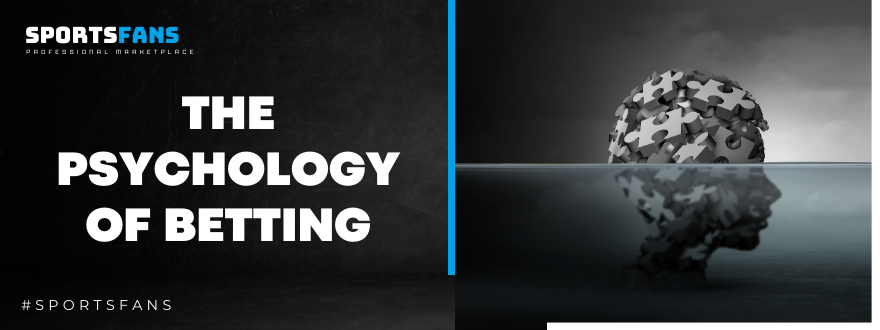
Psychology Of Betting: The Impact of Emotions and Cognitive Biases On Choices
Betting can be fun, relaxing, and exciting. But, for those who see this activity as more than a recreational outlet, it’s vital to look beyond this veil and understand certain aspects of this exercise. One especially crucial aspect that serious bettors need to familiarize themselves with is the psychology of betting. Learning and understanding how emotions and cognitive biases affect decision-making can make you a better and more profitable punter. Let’s get started on that now.
How Emotions and Cognitive Biases Affect Decision-Making in Gambling
Sadly, all humans, punter or not, carry at least one bias. How we perceive the world can change significantly, depending on the nature of this bias. It is because the tendency is like a filter and can go a long way in influencing our actions and decisions. Here, we’ll examine how emotional and cognitive bias affects a punter’s betting session.
The Effect of Emotional and Cognitive Bias on Betting Psychology
Now, every punter knows that a clear head is necessary for winning wagers in betting. However, achieving a certain measure of objectivity by a bettor is bogged down by emotional and cognitive bias.
What Are Emotional And Cognitive Biases?
To understand this concept better, emotional and cognitive biases will be broken down and addressed separately.
Emotional Bias – What To Know
Emotional bias refers to spontaneous feelings of preference that may arise when making a wager. More often than not, this type of bias draws its roots from personal experience and can be incredibly difficult to shake. That said, emotional bias isn’t necessarily a bad thing all the time, as it can sometimes encourage punters to be more prudent with their wagers.
Cognitive Bias – What To Know
These types of bias often stem from notions that may or may not be accurate. Typically, a bettor will employ a cognitive bias as a rule of thumb, even though its guidance may not be proper. A classic example of cognitive bias is Gambler’s Fallacy.
How Does Emotional and Cognitive Bias Affect Betting?
There are several ways that these two biases affect a bettor’s gambling experience profoundly. Arguably, the biggest of these is that it robs a punter of objectivity and makes them unable to analyze things rationally. Once a bettor loses their ability to think critically, two things happen; first, they must spot valuable betting opportunities correctly. Second, they become blind to the potential danger of taking specific bets.
Final Word
A bias of any nature is not an asset to a bettor. It holds you down and effectively limits your potential. Now that you understand the psychology of betting a little better, it’s up to you to identify and eliminate any biases you might hold.
- Tag
- Key Numbers
- Betting Strategy
- Betting Prediction
- Betting Tips
- Bookmakers
- Bookies
- Champions League
- Betting Calculation
- Accumulator Bets
- Football Scandals
- Legal Betting
- Betting USA
- Betting 101
- Football
- Sports Betting
- Betting Systems
- Betting Recommendation
- Online Sports Betting
- Sports Moments
- Sports News
- Betting trends
- Betting Odds
- Professional Betting
- Gambling Career
- Soccer Betting
- Soccer 101
- Tipsters
- Betting Guide
- Sports Betting Strategies
- Betting Market
- Fantasy Sports





